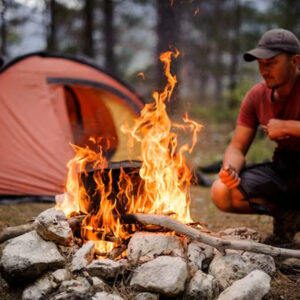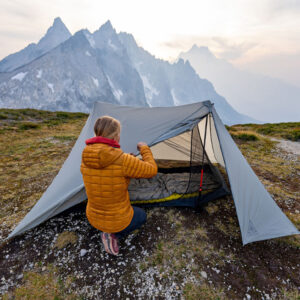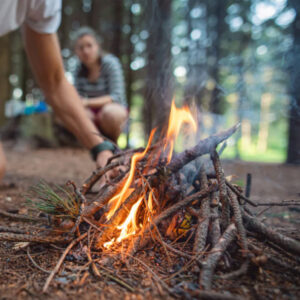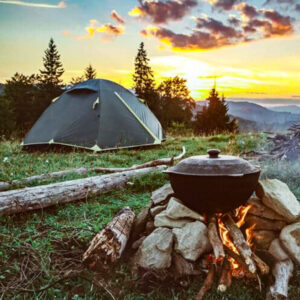Survival Essentials: Shelter, Fire and Water
Finding yourself in a survival situation can be terrifying, but having a basic understanding of essential survival skills can significantly increase your chances of survival. Three fundamental elements are crucial: shelter, fire and water.
Shelter: Your Safe Haven
A shelter provides protection from the elements, whether it’s scorching heat, freezing cold, rain or wind. It’s your sanctuary against the harsh conditions of the outdoors.
- Protection from the elements: A shelter shields you from rain, wind and extreme temperatures.
- Physical and mental well-being: A safe space helps maintain body temperature and provides a sense of security, crucial for survival.
- Rest and recovery: Adequate sleep is essential for physical and mental recuperation.
Fire: Your Lifeline
Fire is a versatile tool with multiple benefits. It provides warmth, light, a means to cook food and a psychological boost.
- Warmth: Fire is vital for maintaining body temperature, especially in cold conditions.
- Light: It illuminates your surroundings, enhancing safety and visibility.
- Cooking: Fire allows you to cook food, providing essential nutrients and energy.
- Signal: Smoke can be used as a distress signal to attract attention.
- Psychological comfort: The warmth and light of a fire can provide a sense of security and well-being.
Water: Your Sustenance
Water is essential for survival. Dehydration can occur rapidly, leading to severe health problems.
- Hydration: Water is crucial for bodily functions and prevents dehydration.
- Sanitation: Water is necessary for personal hygiene, reducing the risk of infection.
- Food preparation: Water is often required for cooking and preparing food.
Boiling Water for Purification:
While finding a clean water source is crucial, it’s essential to purify water before consuming it to avoid waterborne illnesses. Boiling is one of the most effective methods.
- Kill microorganisms: While boiling water for at least one minute effectively kills most harmful bacteria, viruses and parasites, it doesn’t remove chemicals or heavy metals. If you suspect contamination beyond biological, consider other purification methods like filtration or chemical treatment.
- Safety: Ensure the water reaches a rolling boil for at least one minute for the purification process to be effective.
- Cooling: Allow the boiled water to cool before drinking.
Remember:
While these are fundamental survival skills, it’s crucial to undergo proper training and practice in a controlled environment. Survival situations can be unpredictable, and knowledge is your best defense.



